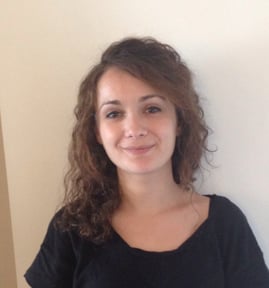Meet Your Summer Mentor: Dara
Topic: Outside the Box: Non-High School Math
Explore math concepts that you won’t see in high school: The Cantor set and concepts of infinity, modular arithmetic and basic code breaking, the fundamentals of mathematical proof, infinite sequences and series and any other math topics that you have been interested in. Enrich your high school curriculum and get a taste for the types of puzzles you will see in advanced math.

Dara Gold, PhD in Differential Geometry, Boston University
Dara grew up in New York City where she attended Lab High school. She majored in math at Georgetown University where she graduated Magna cum Laude and won the Henry M. Leslie award for proficiency in math. Dara is currently a fifth year math PhD student at Boston University studying differential geometry.
Dara loves teaching and tutoring and has extensive experience doing private tutoring in all middle school and high school math subjects (including geometry, algebra, trigonometry, pre-calculus and calculus). Dara has helped students prepare for exams, understand course material, and develop their organizational and study skills. In grad school, she has been a Teaching Fellow in the math department, teaching multivariate calculus and differential equations.
In her spare time Dara enjoys running, cooking and watching Millionaire Matchmaker.
1) Why are you excited to teach a mentorship in X topic?
While many high school math topics are taught without real-world applications in mind, I am excited to lead a mentorship designed to explore math techniques students won't see in high school along with their real world uses. For example, basic modular arithmetic and introductory number theory concepts are the underpinnings of code breaking theory. Mathematical logic is the basis for all proof techniques in higher math but is also essential for forming arguments in any real world context.
2) What will I get out of this mentorship?
The mentorship will be structured as a series of private classes with assignments and projects aimed to prepare students to work in higher level math; forming accurate assumptions, developing proof writing skills, honing mathematical reasoning abilities. Although most assignments will be problem sets, they will contain problems to be solved over the course of the program, culling techniques that we will be working on throughout.




